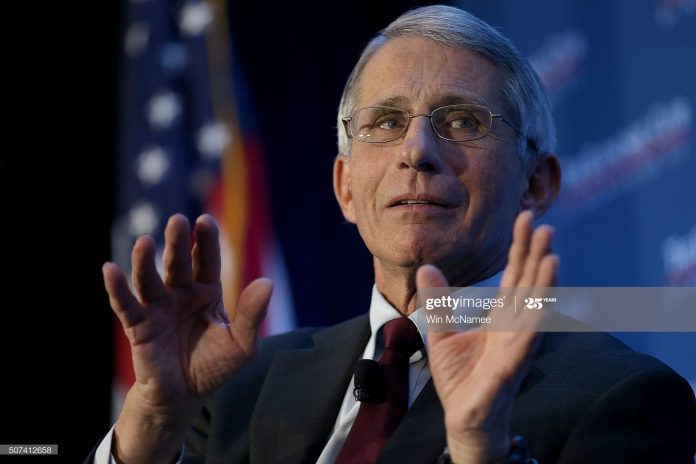
What Was Anthony Fauci’s Top Aide Hiding?
‘I learned from our foia lady here how to make emails disappear,’ David Morens wrote in one email.
Wall Street Journal
May 27, 2024
The Covid pandemic wasn’t government’s finest hour, not least because of a persistent lack of transparency. Emails released last week by the U.S. House reveal how Anthony Fauci’s former top adviser worked to keep the public in the dark and thwart investigations into Covid’s origins.
The House Select Subcommittee on the Coronavirus Pandemic has been investigating the National Institutes of Health’s funding of the nonprofit EcoHealth Alliance, some of which flowed to scientists at the Wuhan Institute of Virology doing risky experiments with coronaviruses. The committee earlier found that the NIH and EcoHealth failed to monitor properly the Wuhan experiments.
Subpoenaed private emails from Dr. Fauci’s senior adviser, David Morens, now show how NIH officials and EcoHealth President Peter Daszak sought to conceal their lapses. After the Trump administration in April 2020 suspended funding for EcoHealth, Dr. Morens rallied to Mr. Daszak’s defense.
“There are things I can’t say except Tony [Fauci] is aware and I have learned there are ongoing efforts within NIH to steer through this with minimal damage to you, Peter, and colleagues, and to nih and niaid,” Dr. Morens wrote to Mr. Daszak on April 26, 2020. “I have reason to believe that there are already efforts going on to protect you.” (NIAID is the National Institute of Allergy and Infectious Diseases, which Dr. Fauci directed from 1984 through 2022.)
Dr. Morens led the Daszak protection program. His subpoenaed emails show that he helped edit EcoHealth’s press releases and worked to get its funding restored. He also sought to thwart Freedom of Information Act requests by outside groups regarding the EcoHealth grant.
On Feb. 24, 2021, Dr. Morens wrote to Boston University scientist Gerald Keusch: “I learned from our foia lady here how to make emails disappear after i am fioa’d [sic] but before the search starts, so i think we are all safe. Plus i deleted most of those earlier emails after sending them to gmail.”
Safe from what? Public scrutiny?
Note that Dr. Morens and Dr. Keusch collaborated on a September 2020 article that claimed “theories about a hypothetical man-made origin of SARS-CoV-2 have been thoroughly discredited by multiple coronavirus experts.” Their article advocated more funding for groups like EcoHealth “to prevent this tragic history from repeating itself.”
Dr. Morens noted in another email to Dr. Keusch: “I learned the tricks last year from an old friend, Marg Moore, who heads our FOIA office and also hates FOIAs.” FOIA productions are burdensome, but government officials are required by law to preserve their emails and to conduct government business on government accounts.
Dr. Morens didn’t, and his emails suggest Dr. Fauci might also have used private addresses in this manner. Dr. Morens wrote to Mr. Daszak on April 21, 2021: “PS, i forgot to say there is no worry about FOIAs. I can either send stuff to Tony on his private gmail, or hand it to him at work or at his house. He is too smart to let colleagues send him stuff that could cause trouble.”
The next day, Dr. Morens wrote to Dr. Keusch: “If i had to bet, i would guess that beneath Tony’s macho I-am-not-worried reaction he really is concerned. And whatever the case he should be very concerned about what happened to Peter, to our research portfolio in an extremely important area, and to scientific independence.”
In other words, NIH officials worried about losing public support if their EcoHealth records were made public. Was this why the Health and Human Services Department in May 2021 blocked FOIA document releases related to EcoHealth and the Wuhan Institute of Virology?
Mr. Daszak thought so. “On a cynical note, I suspect HHS is doing this because they feel that Tony Fauci & Francis Collins [then head of NIH] are under pressure, and they don’t want more mud to be slung around,” he wrote to Dr. Morens. The halt on FOIA releases may also have given NIH officials more time to clean out their emails.
Dr. Morens wrote to another outside collaborator, Baylor College of Medicine’s Peter Hotez, on June 28, 2021, that he had deleted all his emails related to the Covid origin “when the s— started hitting the fan.” “I feel pretty sure Tony’s was too. The best way to avoid FOIA hassles is to delete all emails when you learn a subject is getting sensitive.” In other words, Dr. Morens believed that Dr. Fauci’s emails with Mr. Daszak were also deleted to avoid public disclosure.
Amid increasing scrutiny from House Republicans of the EcoHealth grant, Dr. Morens wrote to Mr. Daszak on Oct. 25, 2021: “Peter from Tony’s numerous recent comments to me, and from what Francis [Collins] has been vocal about over the past 5 days, they are trying to protect you, which also protects their own reputations.”
Dr. Morens’s emails showcase how government officials circled the wagons to protect themselves. Dr. Morens, who is currently on administrative leave owing to the committee’s revelations of his potential federal records law violation, told lawmakers last week that his FOIA avoidance was “wrong” but denied knowledge that his emails constituted federal records under the law. Regardless, he was clearly trying to conceal the Daszak grant background.
In related news, HHS moved last week to bar Mr. Daszak from federal programs, citing EcoHeath’s “improper conduct.”
Dr. Keusch in a statement called Mr. Daszak’s punishment “really dangerous to science, for scientists, and for national security.”
The real danger to science is lack of candor by health officials.
The House investigation is another illustration of why Americans have lost trust in public-health institutions. Members of Congress might consider cutting funding for the NIH as punishment for employees’ obfuscations.
Source: Wall Street Journal

